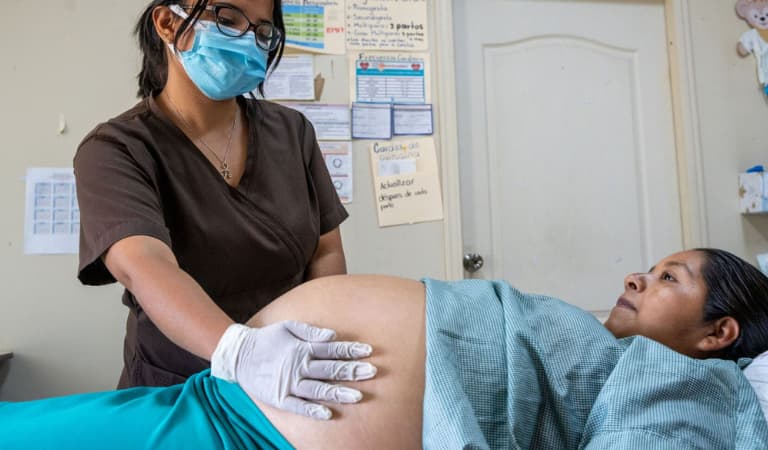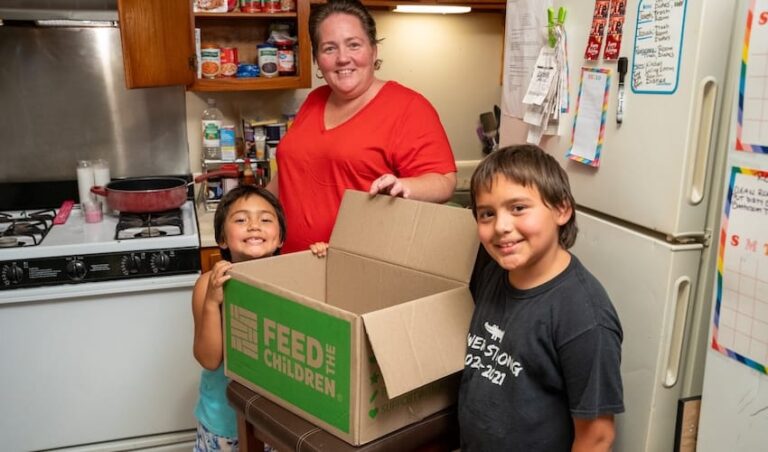
Nutrition Tips for Pregnancy
The first 1,000 days of a child’s life are the most crucial for its development. That counter starts at conception, not birth – so if you’re pregnant, it’s important to begin addressing your body’s new nutritional needs as soon as possible.
Caloric Needs
Calories are one of the most basic units of measuring food – they are the energy within the things we consume. The USDA provides this basic outline of caloric needs for people of various ages and activity levels. Keep in mind, this is a general guideline only, and any individual’s caloric needs may be higher or lower depending on their size, activity level or other factors.
Growing a baby takes extra energy, especially during the second and third trimesters when most of the physical development of the fetus occurs. According to the American Pregnancy Association, a pregnant woman needs an extra 300 calories per day during these stages of pregnancy. Applying that to the USDA’s outline, a moderately active 26-year-old woman would need to up her calories from 2,000 to 2,300 during her last two trimesters of her pregnancy.
Protein, Fat and Vitamins
While having enough calories to support fetal development is important, making sure those calories contain enough of the correct nutrients is equally important.
During pregnancy, women should eat more protein (approximately 20-25% of daily caloric intake should come from protein) and healthy fats (about 25-35% of their daily caloric intake). “Healthy fats” tend to be unsaturated fats – such as those in nuts, seeds, avocados, and olive oil – rather than saturated fats.
Vitamins are also important for fetal development. We’ve covered the importance of proper nutrition for childhood development, but the benefits of good nutrition begin before a child is even born. There are six key nutrients essential for pregnancy. These are:
Iron
Why it’s needed:
Iron helps in the creation of new red blood cells, which both the mother and fetus will need. During pregnancy, a woman’s blood volume nearly doubles – so iron is not a nutrient to skip!
How to get it:
Meat and eggs are great sources of iron (note that both should be fully cooked to be safe to eat during pregnancy – more on that later). Vegetarian sources of iron include dark leafy green vegetables, canned tomatoes and broccoli. Cooking meals in a cast-iron skillet will also increase food’s iron content. Pregnant vegetarians and vegans in particular may want to consider an iron supplement.
Calcium
Why it’s needed:
During pregnancy, the body takes calcium from a woman’s bones and transfers it to the growing fetus. Since the human body can’t produce calcium on its own, it is crucial for pregnant women to eat foods that are high in this mineral.
How to get it:
Dairy products are one of the best sources of calcium. Additional sources include calcium-fortified grain products, salmon, tofu and dried fruits like dates, figs and prunes.
Vitamin D
Why it’s needed:
Vitamin D plays a key role in calcium absorption, and since pregnancy increases calcium requirements, it’s only logical that the body’s need for vitamin D increases as well. This vitamin can also help reduce the chance of preterm labor and infections during delivery.
How to get it:
Getting healthy amounts of sun exposure (5-10 minutes a day, 2-3 days a week is plenty – don’t get sunburned!) helps produce vitamin D. Foods containing vitamin D include egg yolk, salmon and cod liver oil, as well as D-fortified dairy products.
Folic Acid
Why it’s needed:
Folic acid has been proven to help prevent multiple birth defects in the developing fetus’ brain and spine. In fact, it’s so important to development that the CDC recommends that women planning their pregnancies begin upping their folic acid intake as early as a month before they even begin trying to become pregnant.
How to get it:
The general consensus among healthcare providers is that women should take a folic acid supplement to ensure that they get enough of this vital nutrient. But there are many foods that are good sources of folic acid, too, including beef liver (again, thoroughly cooked), lentils, spinach and beans.
DHA
Why it’s needed:
DHA stands for docosahexaenoic acid, an omega-3 fatty acid. DHA is essential for the development of the fetus’ eyes, heart, brain and nervous system.
How to get it:
The best sources of DHA are cold-water fish. However, these are notoriously high in mercury and should be avoided during pregnancy. Taking a high-quality fish oil supplement, or another DHA-providing supplement, is therefore recommended.
Iodine
Why it’s needed:
Iodine is a micronutrient necessary for the thyroid gland’s hormone production. Getting enough iodine during pregnancy supports the mother’s thyroid function and helps the fetus’ thyroid develop normally, too.
How to get it:
Iodine is found in iodized salt, as well as in eggs, dairy products and seaweed. It is important to note that too much iodine can be as harmful as too little. Excess iodine can lead to hypothyroidism and other conditions, so while taking a prenatal supplement containing iodine is likely to be safe, additional iodine supplements are probably not necessary.

A Note on Prenatal Supplements
Anyone concerned about getting the correct balance of vitamins and micronutrients should speak with her obstetrician or doctor and ask about adding a prenatal vitamin. These supplements usually contain crucial folic acid as well as a correctly formulated, balanced blend of these other nutrients.
Anyone concerned about getting the correct balance of vitamins and micronutrients should speak with her obstetrician or doctor and ask about adding a prenatal vitamin. These supplements usually contain crucial folic acid as well as a correctly formulated, balanced blend of these other nutrients.
What Not to Eat
Pregnancy puts a strain on the immune system, and so pregnant women run higher risks of foodborne (and other) illnesses. During pregnancy, it is recommended that the following foods be avoided, as they are more likely to carry disease-causing bacteria:
- Raw and undercooked eggs, meat and fish
- Unpasteurized dairy and soft cheeses
- Unpasteurized juices
- Deli meats and salads
- Sprouts
- Unwashed fruits and vegetables
Other foods may not pose a risk of food poisoning but should still be avoided:
- Alcohol
- Food/beverages containing caffeine (some caffeine during pregnancy may be safe, but consult your OBGYN)
- High-mercury fish (swordfish, tuna, etc.), even if cooked properly
- Overly-processed foods
- Organ meat, like liver, should only be consumed in moderation to avoid excessive intake of vitamin A
What you eat during pregnancy will impact your growing baby’s long-term health, so do your best to make sure it gets off on the right foot when it comes to nutrition! Although these guidelines feature general best practices, make sure to consult your doctor about your specific nutritional needs.






